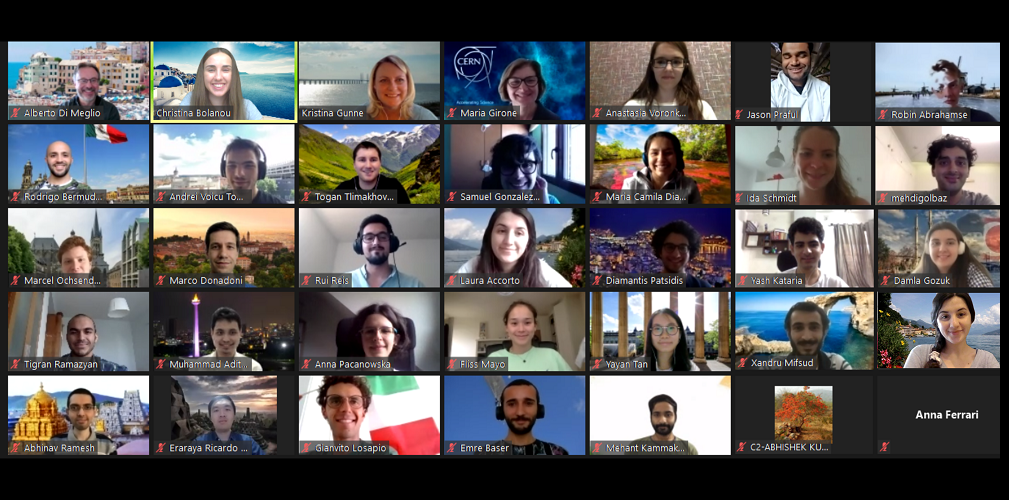The 2021 CERN openlab summer students presented their creative and inspiring work in a series of five-minute “lightning talks” held on 6 and 7 September.
Each year, CERN openlab runs its summer-student programme over nine weeks from July to September. Students from across the globe work on innovative IT projects, guided by experts at CERN. Thanks to the companies participating in the CERN openlab public-private partnership, the students work hands-on with cutting-edge computing technologies. Today, the participating companies are as follows: Intel, Oracle, Siemens, Micron, Google, be-ys Research, IBM, E4 Computer Engineering, Cambridge Quantum Computing, Comtrade and Open Systems (in addition to CERN openlab’s research members).
This year, the students’ projects addressed challenges related to quantum computing, cloud, machine learning, high-performance computing, and much more. All the work for this year’s programme was carried out remotely because of the COVID-19 pandemic. Nevertheless, CERN openlab was still able to offer the usual programme of exciting lectures from IT experts at CERN. Recordings of all lectures are now available online and are free to view.
Some 27 students from 15 countries participated in this year’s programme. “Working with CERN openlab has been an invaluable experience,” says Mehant Kammakomati, a student at NIT Andhra Pradesh in India. “Collaborating remotely across continents has been very enriching.”
The students also took part in virtual visits of different parts of the Laboratory. In addition, many of the students participated in the CERN Webfest, an online hackathon held in August. Mehdi Golbaz, a CERN openlab summer student from India, was a member of the winning team at the Webfest. He and his colleagues combined crowdsourced design and 3D printing to create tools to help people with disabilities.
While a wide range of activities and lectures are on offer, the students’ projects remain the core of the programme. The lightning talks always provide an excellent overview of the hard work carried out by the students. This year was no different: across the two days, participants at the event learned about the challenges faced by the students and the innovative solutions they dreamed up to overcome them.
The members of the CERN openlab management team were impressed by the high quality of the presentations. Together, they highlighted the following five projects as particularly meritorious:
- Quantum-computing simulation benchmarks by Samuel Gonzalez Castillo.
- A data lake as a service for open science by Muhammad Aditya Hilmy.
- Deep Learning techniques for signal processing and event reconstruction at DUNE by Laura Accorto.
- Accelerating high-energy physics workloads using Kubernetes by Jason Praful Francis Xavier.
- Unveiling new capabilities of the Oracle RESTFUL Data Services: GraalVM, third-party authentication systems and integration with modern development frameworks by Marcel Ochsendorf.
These students will each receive a small package of CERN-themed prizes in recognition of their excellent presentations.
“Working for a world-class research organisation like CERN enabled me to hone both my analytical and creative skills,” says Rodrigo Bermúdez Schettino, a student at Technische Universität Berlin, Germany. “It was a once-in-a-lifetime opportunity, which I’ll remember forever.”
“Training the IT specialists of the future is a key component of CERN openlab’s mission,” says Enrica Porcari, CERN IT Department Head. "Despite the challenges of working remotely, the students have forged important relationships – including friendships – that they will surely treasure for years to come. These connections will also serve them well in their fledgling careers, on their journeys to becoming the leading IT experts of the future."
Video recordings of the students’ lightning talks are available on the event pages: session 1; session 2 (videos from the second session will become available very soon).
If you are interested in applying for next year’s CERN openlab summer-student programme, please visit this webpage for further information. Applications will open later this year.
- Andrew Purcell

